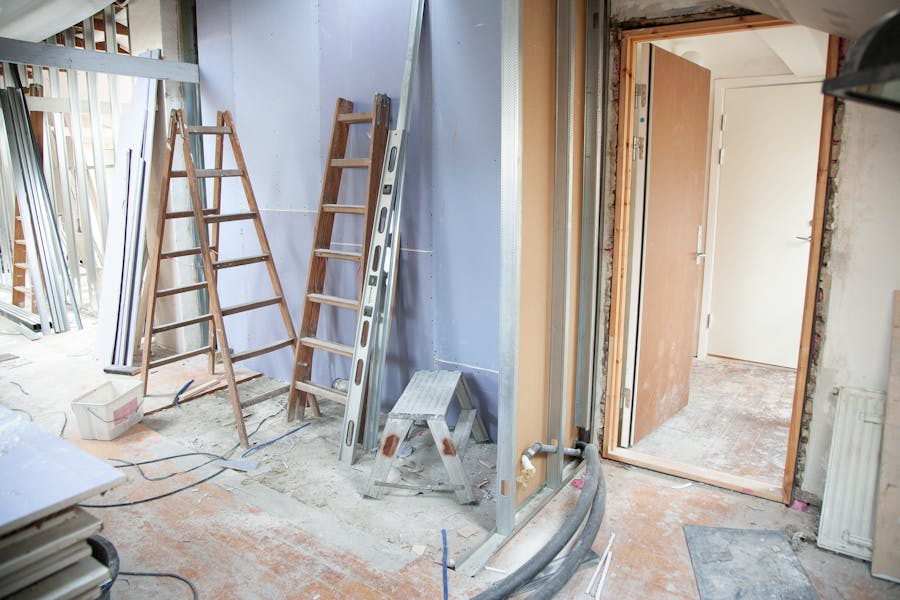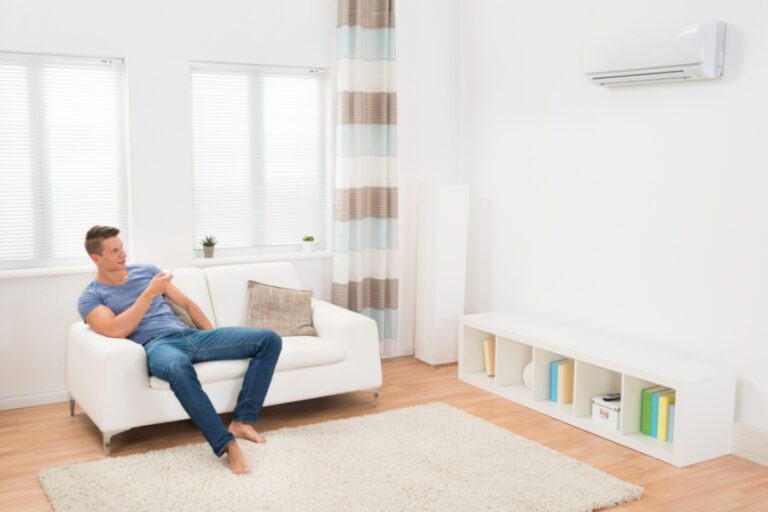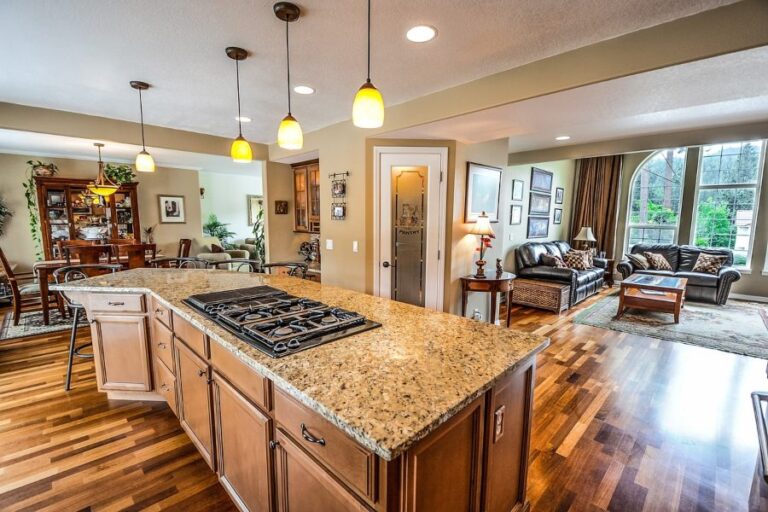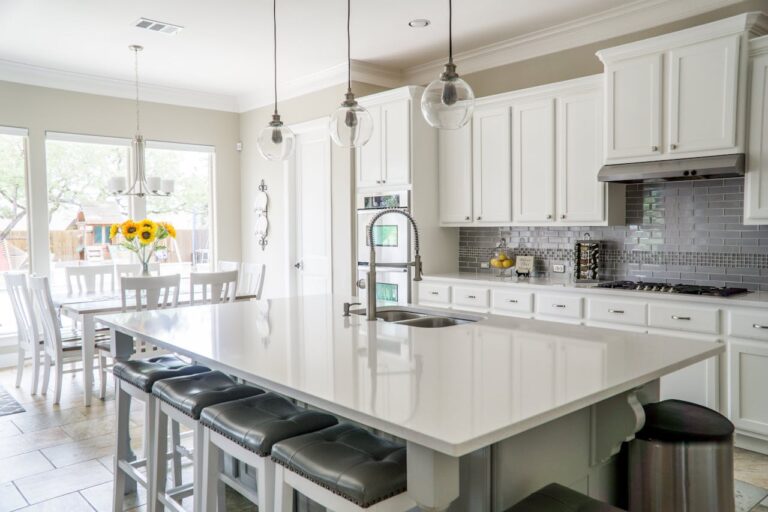Renovating your home sounds like a fun, rewarding project until it isn’t. Most people get into it with a lot of excitement, only to hit roadblocks they didn’t see coming. If you’re planning your first (or next) home renovation, it’s a good idea to know what can go wrong before you even start. That way, you can avoid expensive, stressful mistakes and make sure your finished space turns out exactly the way you imagined.
Below are the most common renovation mistakes people make and how you can steer clear of them.
Skipping the Budget Breakdown
One of the first things people forget to do properly is build a detailed budget. It’s not just about saying, “I don’t want to spend more than $10,000.” You need to break that number down. Think about materials, labor, permits, design fees, and unexpected issues like water damage or wiring problems.
People also overlook how they’re going to pay for the work. Some dip into savings and regret it later. Others put expenses on a credit card and end up paying a lot more in interest. A personal loan can offer a more stable, structured way to fund your project. You can check out this link: https://www.sofi.com/personal-loans/home-improvement-loans/
SoFi’s home improvement loans offer fixed monthly payments, no fees, and same-day funding, which can help you move forward without adding financial stress.
Not Getting the Right Permits
Skipping permits might seem like a way to save time and hassle, but it can backfire quickly. If you do work that doesn’t meet local codes and someone finds out, you could face fines or be forced to redo the job. And if you ever sell the house, unpermitted work could delay the sale or lower your property’s value.
Always check with your local city office to see what permits are needed. Don’t assume your contractor is handling it unless it’s in writing. Some small projects don’t require permits, but many do—even things like changing plumbing or knocking down a wall.
Hiring Without Doing Your Homework
Finding a contractor or handyman is easy. Finding the right one takes effort. Don’t just hire someone because they’re available right away or because a friend used them five years ago. Do your research. Read recent reviews. Ask for proof of licensing and insurance. Request to see photos of their work and contact a few references.
Once you choose a contractor, get everything in writing. Write down the work details, deadlines, costs, and payment terms. This keeps things clear for you and the contractor and helps avoid confusion.
Going Too Trendy with Design Choices
We’ve all seen beautiful photos on Pinterest or Instagram of bold tiles, flashy fixtures, and dramatic color palettes. But trends fade. That emerald green backsplash you love now might look outdated in two years.
Try to stick to classic, neutral designs for large, permanent features like floors, countertops, and cabinets. You can bring in trendy colors and textures through things like wall art, throw pillows, and furniture—which are easy to switch out later.
Underestimating Timelines
TV shows make it look like you can renovate a whole house on a weekend. Real life isn’t so fast. Delays happen all the time—materials get held up, workers fall sick, or unexpected issues show up once you open a wall.
A good rule is to add 20–30% more time than you originally think you’ll need. If you believe it’ll take two weeks, plan for three. Having that extra time built in helps you stay flexible and less frustrated if things slow down.
Doing It All Yourself
DIY can save you money, but it’s not always the right move. Some tasks—like painting a room or changing out hardware—are simple enough. But other jobs, like electrical work, plumbing, or anything structural, are best left to professionals.
Trying to do too much yourself can lead to mistakes that cost more to fix than hiring someone in the first place. Be honest with your skills. If you’re unsure, it’s better to call in help than risk safety or quality.
Ignoring Lighting Plans
Lighting affects how your space looks and feels. Still, many people wait until the last minute to think about it. That’s a mistake. You should include lighting in your initial design plan.
Consider how much sunlight comes into each room. Then, decide where to add overhead lights, lamps, or accent lighting. Dimmers are a great option for flexible lighting. Don’t forget the type of bulbs, either—warm white creates a cozy feel, while cool white is better for work areas.
Forgetting About Storage
Many people forget to plan enough storage when renovating. You might focus so much on style that you forget where everything will go. Later, your space looks great—but feels cluttered.
Try to build in storage wherever you can. Think about under-bed drawers, floating shelves, tall cabinets, or built-ins. Custom storage can be an investment, but it pays off in how you live in the space every day.
Not Planning for Daily Life During Renovation
If you’re living at home during a renovation, plan ahead for the disruption. A kitchen remodel means no stove or sink for a while. Bathroom work can limit how many showers are available. And noisy work might affect your sleep or work-from-home setup.
Set up temporary zones if needed—a microwave and mini fridge can get you through a kitchen upgrade. Talk with your contractor about daily work hours and how they’ll keep dust and tools under control.
Focusing Only on the Inside
When planning a renovation, most people think about the inside of the house. But the outside matters, too. A fresh coat of paint, new shutters, or upgraded landscaping can totally change how your home looks and feels.
Curb appeal adds value and creates a better first impression. Even small updates like planting flowers or replacing the front door can make a big impact without a huge budget.
Renovating your home is a big deal—and it can go smoothly if you plan well and avoid common mistakes. Take the time to set a clear budget, pick the right team, and be realistic about what you can and can’t do. Most importantly, don’t rush. The more thought you put in before the work begins, the happier you’ll be with the results. When it’s done right, a home renovation can improve your space, your lifestyle, and even your peace of mind.







